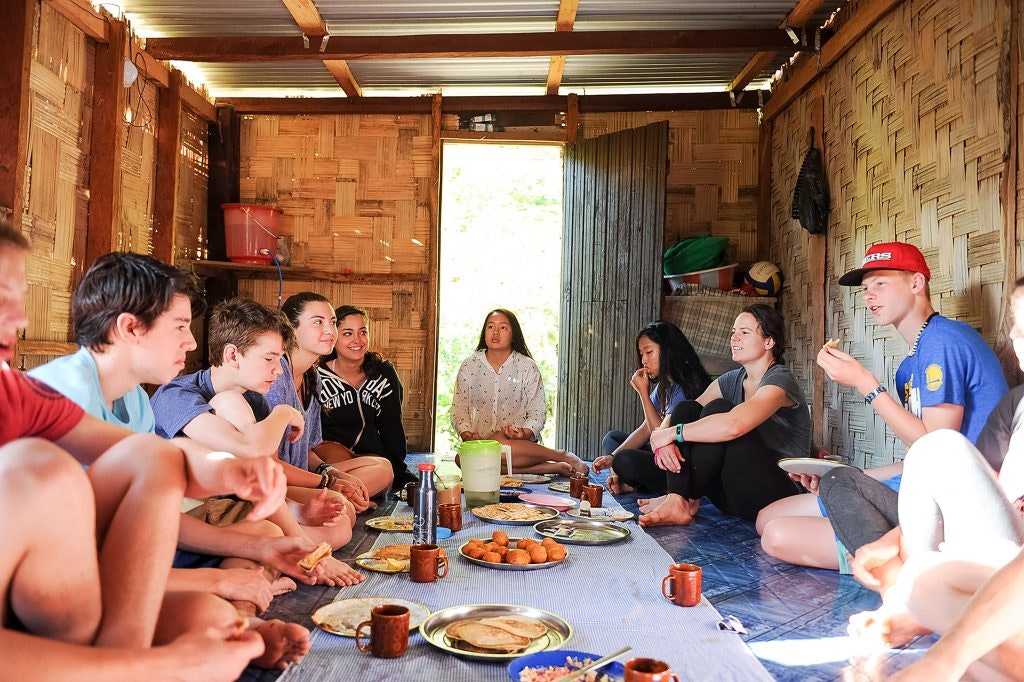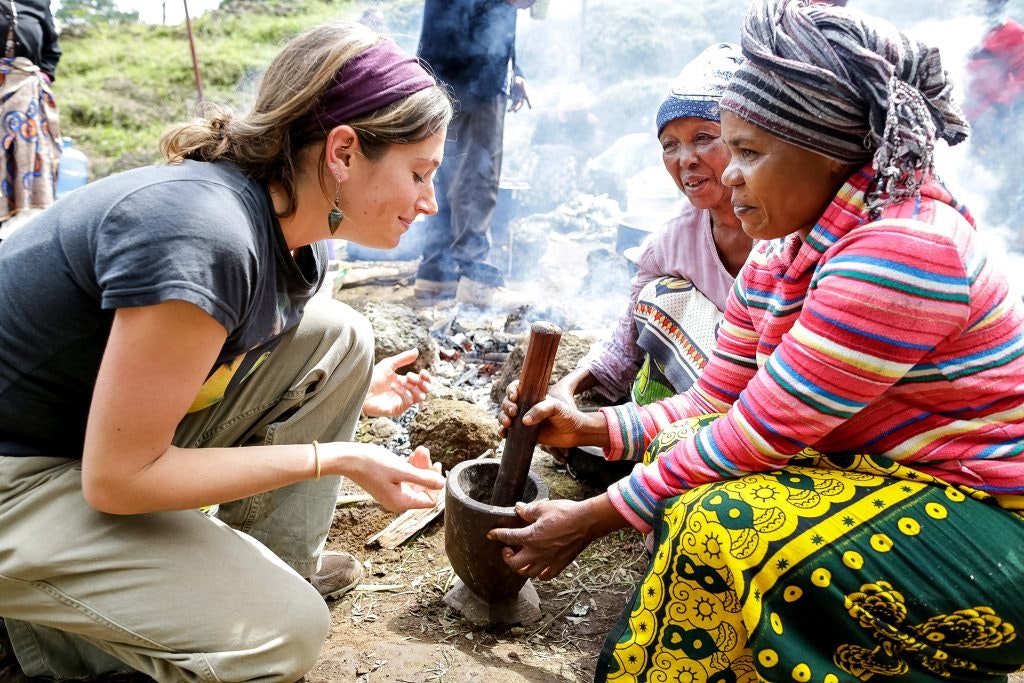What is the difference between cultural sensitivity and cultural competence?
Cultural sensitivity is the recognition and respect for cultural differences, while cultural competence goes further by actively applying this knowledge in everyday interactions. Cultural competence involves not only sensitivity but also the ability to work effectively and respectfully with people from different cultures.
What does lack of cultural sensitivity mean?
A lack of cultural sensitivity means failing to recognize or respect cultural differences, which can lead to misunderstandings, offense and even alienation. It often stems from ignorance and a lack of awareness about other cultures.
Reacting in a Culturally Appropriate Manner
Consider this potential scenario: A group of teens heads out to explore an open market and stops at a vendor selling an unfamiliar food. Many of them haven’t been to an open market, or have any idea what the vendor is cooking over an open fire. Perhaps it’s something they normally wouldn’t consider eating back home.
The vendor offers the group a sample and the teens are faced with a decision:
- Deny the unfamiliar food because it’s “gross” or “strange”
- Ask questions to learn more about it and how it’s prepared before trying it
- Accept the vendor’s offer without hesitation

Try new delicacies on a travel program.
It is okay to not understand or be familiar with something. However not understanding is different from assigning it a negative value because of their assumptions, knowledge or past experiences. The less they try to define another culture’s practices within the constructs of their own biases and belief systems, the more open-minded they’ll become by trying new things and experiencing different cultures.
In our programs, your teen is encouraged to practice acceptance and to ask questions about different cultures.
In the open market example, they could ask why certain foods are eaten, what they’re made from, and how they’re prepared before deciding whether to try them. We ask them to avoid making negative declarations like “ew” or “yuck.” We also recommend not using closed body language like avoiding eye contact and crossed arms.

Connect with peers and locals.
Practicing Cultural Sensitivity
Rustic’s high school travel programs allow teens to practice cultural sensitivity. They’ll be exposed to new places, different cultural backgrounds, unique cultural beliefs or traditions, different styles of clothing, and unfamiliar foods to name a few.
Asking teens to be culturally sensitive doesn’t mean they’ll be expected to become experts in each culture’s values and customs. Instead, they’ll be encouraged to ask questions, seek to understand, and demonstrate empathy rather than making assumptions and judging those around them.

Help and learn from each other.
Here are refined ways to practice cultural sensitivity:
- Be Open-Minded
Approach each interaction with the mindset that every local culture has its own value system and traditions. Being open-minded means being willing to learn, adapt, and sometimes challenge your own assumptions about the world, understanding that there is no single “correct” way to live or think.
- Respect Cultural Traditions
Acknowledge and honor the cultural practices, holidays, and rituals that are important to others. Even if you don’t personally follow these traditions, showing respect for them, such as by learning about or participating in cultural events, goes a long way in demonstrating cultural sensitivity.
- Use Inclusive Language
The words you choose can reflect respect or intolerance. Avoid using language that marginalizes or stereotypes groups based on their ethnicity, gender, or background. Opt for inclusive, neutral terms that promote equality, such as addressing people by their preferred terms of identity.
- Adapt Your Communication Style
Different cultures may have distinct communication styles, including how direct or indirect one should be in conversations. Be mindful of these differences, adjusting your approach by being more formal or informal based on the person’s cultural context, and avoiding communication that could be seen as aggressive or dismissive.
- Be Mindful of Non-Verbal Cues
Gestures, body language and personal space can vary widely between cultures. For example, a handshake may be seen as friendly in one culture but disrespectful in another. Pay attention to non-verbal cues to understand how your actions are being received and adjust accordingly to avoid causing offense.
- Educate Yourself
Take the initiative to learn more about the cultures around you. Understanding key phrases in the local language and respecting local customs not only helps you connect better with others but also shows respect for their traditions and values.
Tip: Unsure how to respond in certain situations? Whether interacting with people, in business or government jobs or while visiting cultural sites, engage with locals and initiate a respectful conversation to gain insight and navigate the situation appropriately.
Benefits of Cultural Competence
Your teen will walk away from their Rustic experience with a new set of essential skills around cultural awareness. These skills will help them be more aware, reflect on the global world around them, and navigate an increasingly multicultural society.
These are the non-cognitive skills that make up the Student Learning Outcomes at the heart of every program:
- Openness to New Ideas and Experiences
- Sense of Wonderment
- A Belief That All People are Connected by a Shared Humanity
- A Desire to Positively Impact the Lives of Others
- Empathy
- Self-awareness
- Humility
- Grit
- Independence
- Intercultural Competence
Of the 10 learning outcomes that we’ve identified, three of them—openness to new ideas and experiences, empathy, and intercultural competence—are directly connected to cultural sensitivity.
A better understanding of global cultural practices leads to greater acceptance of others and heightened cultural sensitivity. The more we embrace our differences, the more we knock down intercultural barriers that create conflict in our world.
>> KEEP READING Social Etiquette Around the World: 10 Essential Travel Etiquette Tips.
Want to expose your teen to another culture? Give the gift of travel this year. To learn more, request a call from one of our global travel experts.




